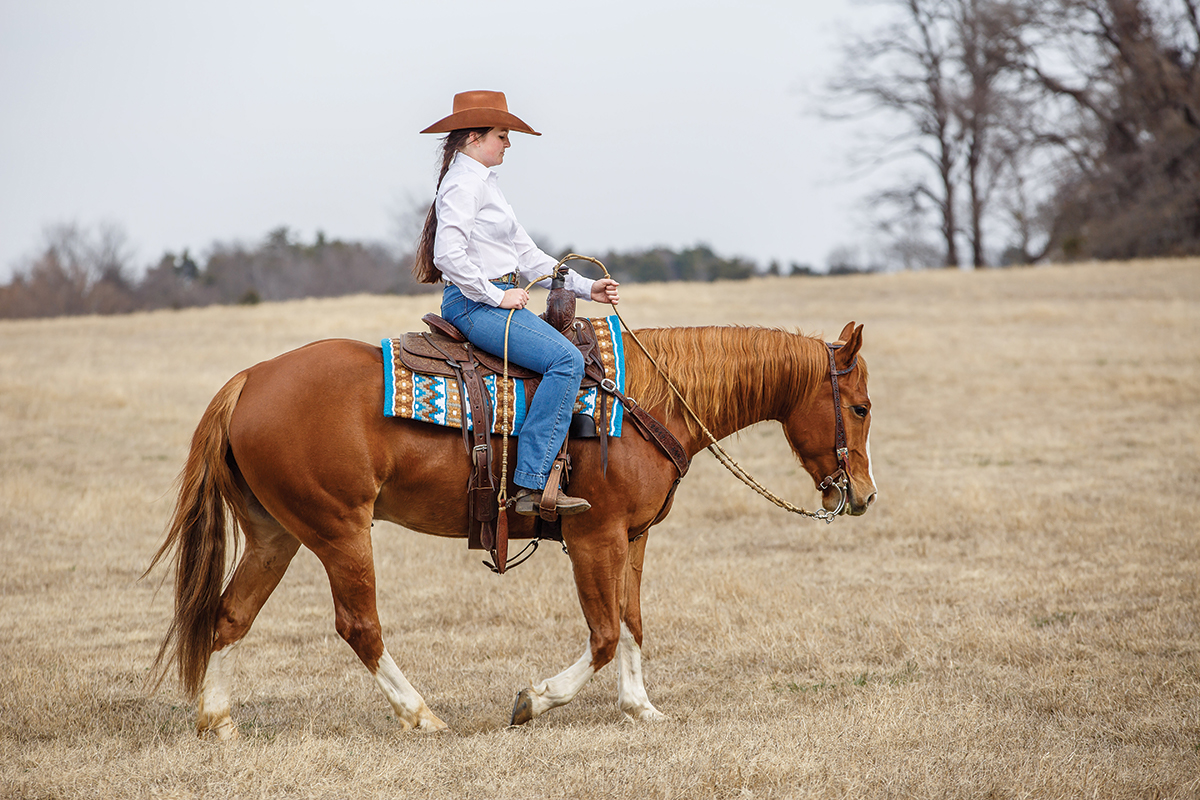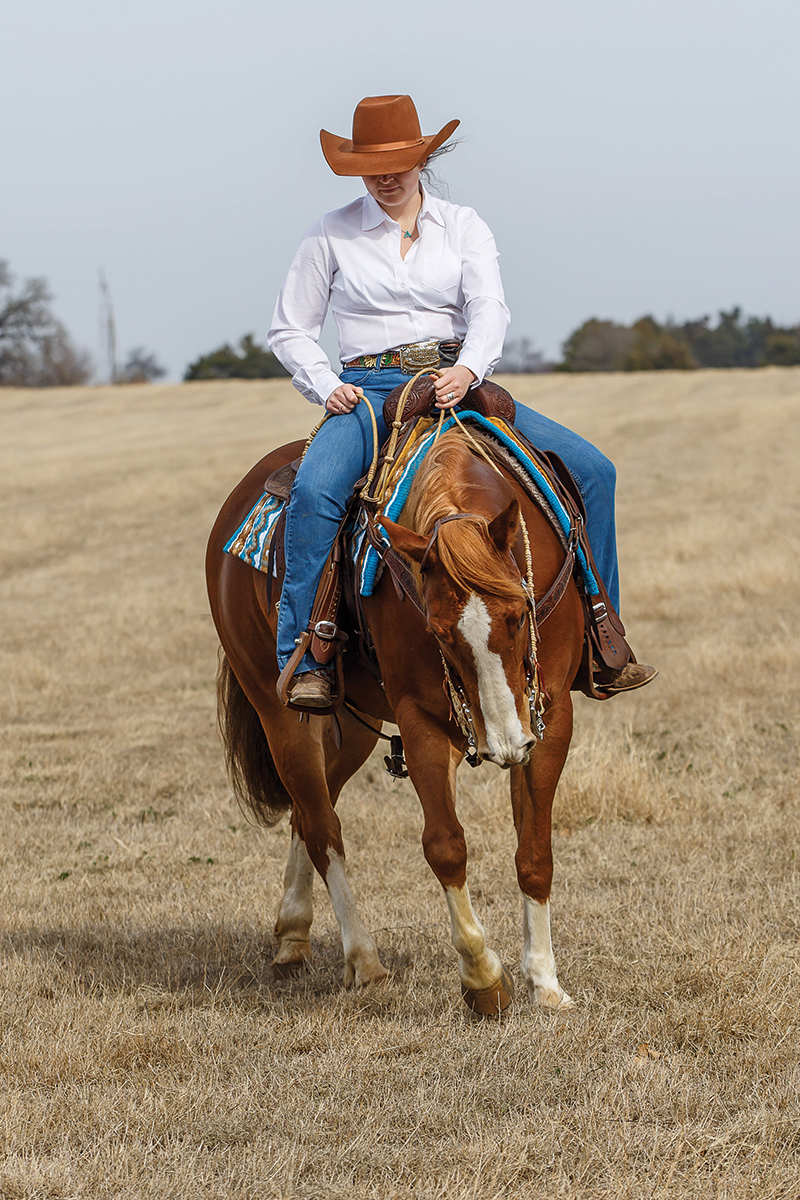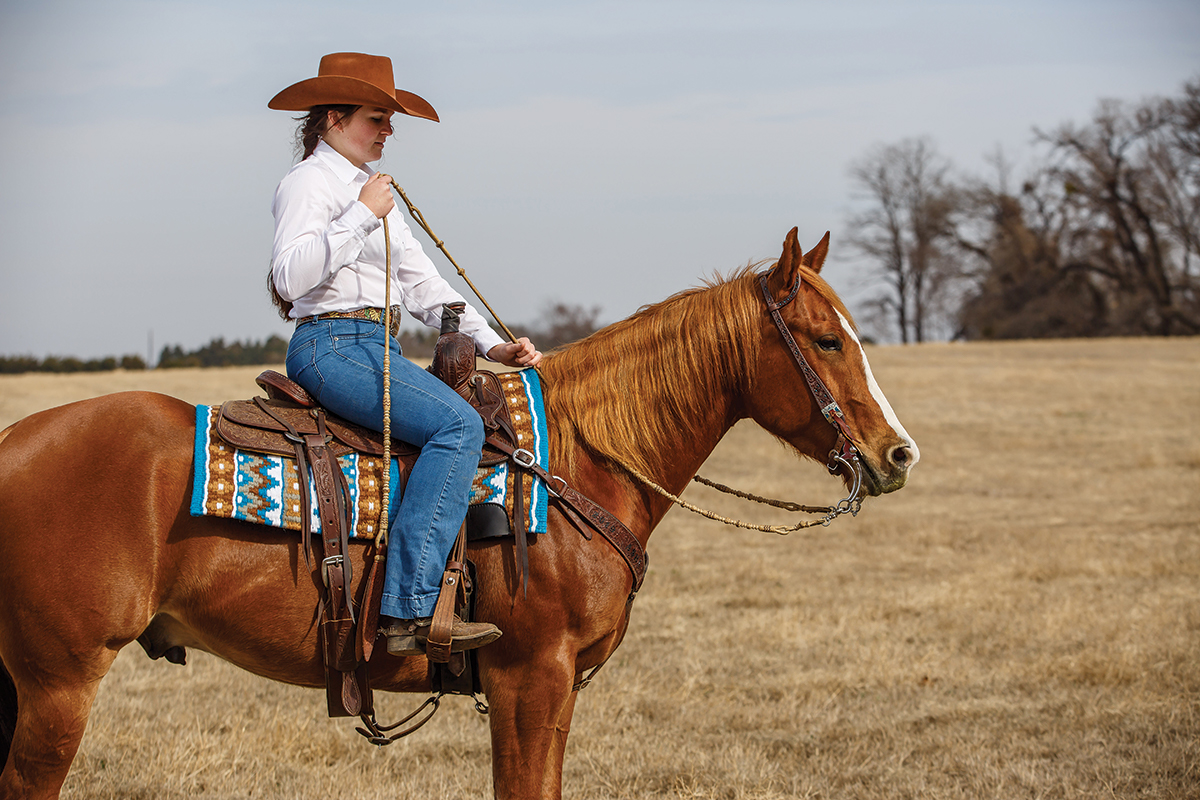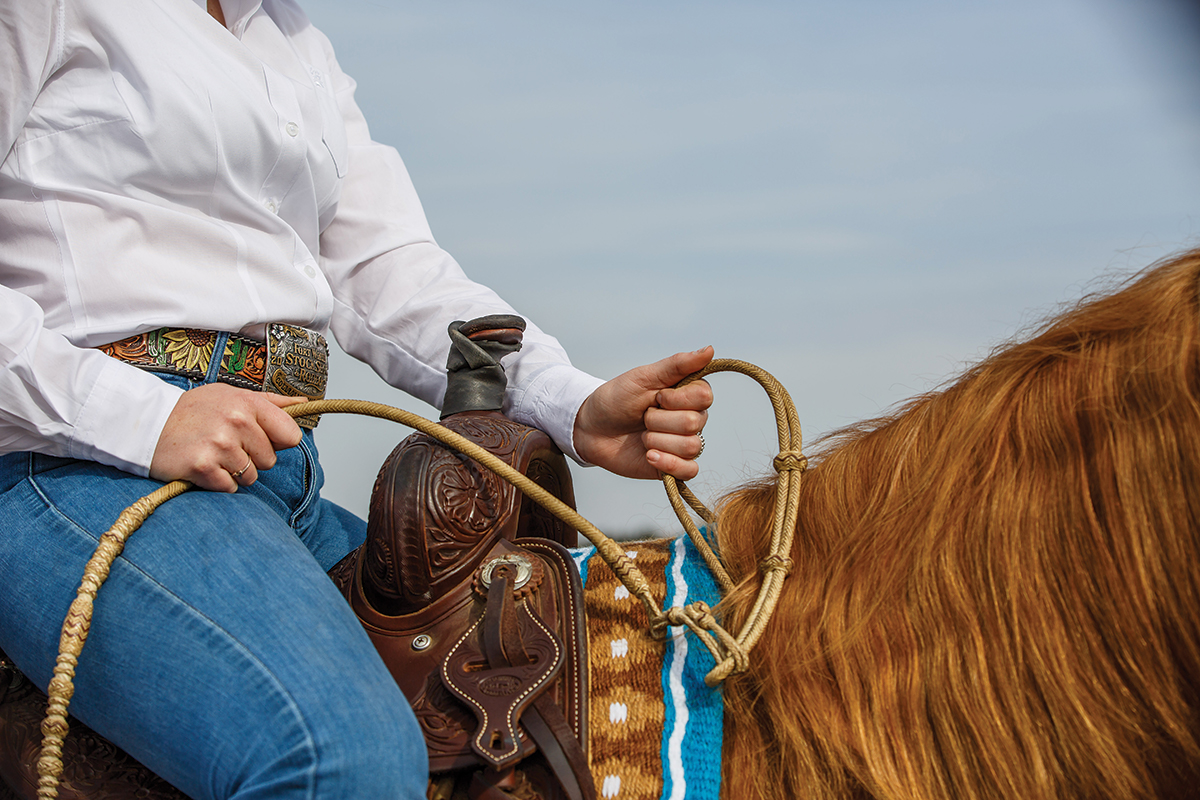This textual content about using romal reins appeared inside the Would possibly 2021 problem of Horse Illustrated journal. Click on on proper right here to subscribe!
[ad_1]

A staple piece of tack for lots of West Coast western riders, romal reins could possibly be a little bit little bit of a thriller in the event you occur to found straightforward strategies to journey inside the japanese components of the US. Whereas this rein started as a reined cow horse mainstay, its use has unfold all through the nation, considerably in cattle programs, ranch programs, reining and path.
Enthusiastic about attempting this mannequin of rein? American Quarter Horse Affiliation (AQHA) Expert Horseman Cathy Woosley Luse of Whitesboro, Texas, shares straightforward strategies to get started.
What are Romal Reins?
In distinction to chop up reins, romal reins are on one hand a closed rein. Nonetheless in distinction to roping reins, moreover they has a second half linked to the reins: the romal, which is a single measurement of rein with a popper, or “quirt,” on the tip.
Some sorts of romal reins have buttons or “ferrules” alongside the dimensions of the reins. Riders keep a romal rein loads differently than each lower up or roping reins.
“They’re typically made out of braided rawhide, leather-based, and even braided kangaroo [leather], which has a wonderful easy actually really feel to it,” Woosley Luse says.
The place to Use
While you should always confirm the rule book for the class throughout which you’re competing, you may in all probability use romal reins in almost any judged western class, along with horsemanship, path, western driving and ranch horse programs.

“They’re of West Coast origin, notably used on the ranch whereas working with cattle, the place you don’t must lose a rein,” Woosley Luse says. “They’re used most regularly in cow horse programs.”
Discover: Romal reins are solely used with shanked bits, not snaffle bits or bits with rings.
Why Use a Romal?
Woosley Luse loves recommending romal reins for novice riders on account of they’re an efficient technique to be taught to protect your rein measurement even. They’re moreover good for a rider who wants to boost their use of neck reining. They help protect the horse upright and within the midst of the reins and may assist a horse keep his head and neck precisely.
“Romal reins truly make you use your legs, on account of it restricts how it is best to make the most of the rein to ‘help’ your horse alongside,” Woosley Luse says. “You’ve acquired to resort to your totally different aids to talk alongside along with your horse.”
Even in the event you occur to on no account plan to point in romal reins, using them in your horse at dwelling is an efficient check out of the talents you and your horse possess.
“I want to introduce them and see if the horse is definitely educated through all areas of his physique,” she gives. “You probably can see their progress with romal reins on.”
Searching for ConceptsRomal reins are a little bit of tack the place you have to put cash into prime quality. AQHA Expert Horseman Cathy Woosley Luse recommends deciding on romal reins made out of harness leather-based to start. She moreover prefers braided kangaroo leather-based for its softer actually really feel. |
Delusion-Busting
Some riders may think judges have a selection of 1 type rein or one different, nonetheless Woosley Luse says this isn’t the case.
“The misunderstanding is that programs are judged differently for a horse sporting romal reins, and I don’t suppose that’s true,” she says. “I consider the judges are literally making an attempt on the effectivity—not the reins you’re using.”
How one can Keep
You’ll keep every reins together with one hand beneath the connector to the romal. Place every reins collectively in your palm with the romal end coming out on prime as you make a fist throughout the reins. “It’s type of like holding an ice cream cone, and your fingers have to be closed,” says Woosley Luse.
Your free hand will keep the romal about 16 inches further down. Relying in your self-discipline, you’ll each keep that fist palm down in your thigh or keep it near your waist alongside along with your elbow close to your aspect.

“That 16 inches between your rein hand and your free hand creates a loop that falls a bit forward,” she explains.
There’s a couple of methods to manage your reins for measurement. The very best is to “pull slack” by opening the fist holding your reins and pulling the romal tail alongside along with your free hand until you attain the desired measurement. Nonetheless this is not approved to do whereas shifting in some programs, paying homage to reining, so confirm the rule book fastidiously.
“Nonetheless you’ll be able to do it when your horse is sitting nonetheless inside the center of the world or demonstrating a hesitation,” Woosley Luse says.
If it is worthwhile to manage rein measurement whereas shifting, you’ll “soar the rein” by opening your rein hand and shortly shifting your hand down or up the reins, then closing your fist. Woosley Luse prefers pulling slack each time potential.
Don’t contact the reins with the hand that is holding the romal tail. Maintain your rein hand closed. Moreover be sure you not put a finger in between your reins when using romal reins in opponents.

The suitable method to utilize them is to maneuver your rein hand backwards and forwards, entrance to once more, solely centered on neck rein steering. That’s the place additional aids, paying homage to your legs, may assist info your horse.
“You don’t use a direct rein with romal reins, so that you just’re truly leaning in your neck rein cues,” she says. “It’s all about shoulder administration.”
Specific resulting from Addison Coutts for modeling these reins at Lybbert Effectivity Horses in Whitesboro, Texas.
Meet the CoachCathy Woosley Luse is an AQHA Expert Horseman, a world champion coach, an AQHA select, and coach of the equine program at North Central Texas School. She and her husband, Van Luse, private the teaching operation Luse Horses in Whitesboro, Texas. |
[ad_2]
Provide hyperlink
